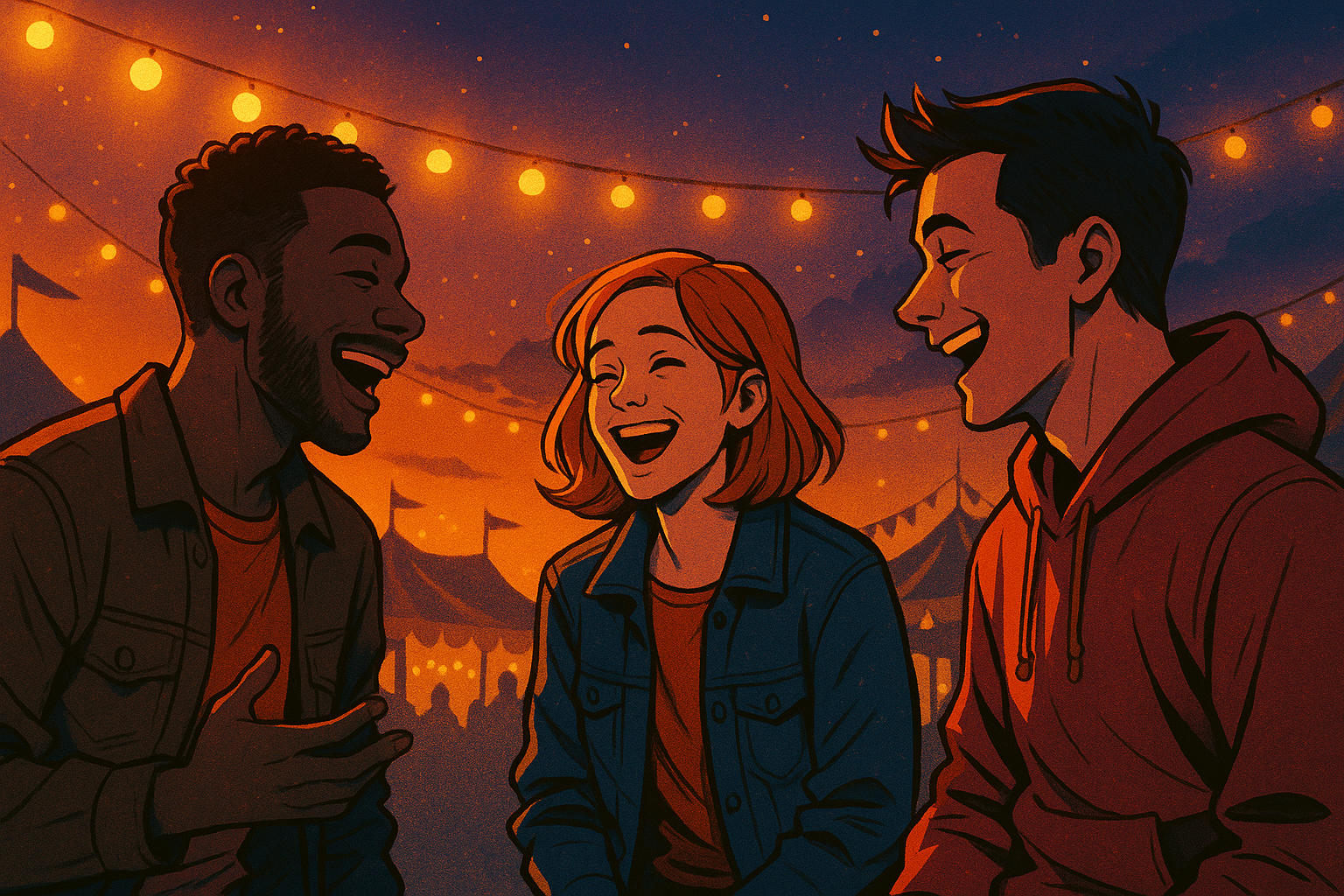
It Wasn’t the Plan, But It Worked
You set out for a weekend adventure with a carefully crafted plan, maybe you picked the perfect road trip playlist, scheduled a stop at that legendary Nashville barbecue spot, or mapped out the trendiest neighborhoods to explore in Toronto. You imagined how the sunset would hit at just the right lookout point, how your Instagram caption would already be written before the moment even happened.
And then, something goes sideways. A road closure. A sudden storm. A missed train connection.
At first, the frustration kicks in. The plan is unraveling. But then somehow that unplanned turn becomes the most unforgettable part of the trip.
As John Lennon once said, “Life is what happens when you’re busy making other plans.”
When the Best Moments Weren’t on the Map
Picture this: A group of friends set off for a camping weekend, hoping to reach a lake by sundown. Midway through their journey, they hit a detour. The main road is blocked. With no GPS signal, they take a winding backroad, unsure of where it leads. Tensions rise.
But as they snake through the countryside, they enter a small town none of them has ever heard of. It’s having its annual summer festival local folk music echoes through the trees, string lights twinkle above booths selling handmade crafts, and the smell of homemade apple pie wafts through the air. It’s cozy. It’s cinematic. It wasn’t part of the itinerary.

That night, they laugh and dance under the stars with strangers who feel like old friends. The next morning, the lake no longer feels like the goal. That little town, that unplanned stop, is what they’ll remember forever.
The Science of Serendipity
These moments aren’t rare.
Most travelers can recall a time when a “mistake” led to an unexpectedly beautiful memory. You might plan to explore the Santa Monica Pier, but a closed boardwalk leads you into a beachside poetry reading at sunset. Or maybe you aim to hike a popular trail near Banff but veer off course and discover a hidden waterfall no one else seems to know about.
As one author once wrote: “Sometimes the most scenic roads in life are the detours you didn’t mean to take.”
And there’s data behind the joy. A behavioral study found that 72% of people report feeling happier after a spontaneous act [1]. A Canadian travel insights report revealed that 53% of spur-of-the-moment travelers described themselves as happy most of the time, compared to only 34% of highly planned travelers [2].
Why? Because when we drop the script, we become more present. Instead of rushing toward what we think should be next, we start noticing the laughter of a child playing near a fountain, the swirl of cinnamon in a coffee shop you stumbled into, the smile from a stranger you helped at the gas station.
When Plans Break, People Bond
Another reason unplanned adventures stick with us? They deepen the connection.
When things fall apart, there’s a shift from “me” to “we.” Suddenly, it’s “okay, what do we do now?” That moment of creative chaos can unite a group like nothing else. It becomes a shared story “remember that time everything went wrong and we loved it?”
These detours aren’t just about the destination. They’re about laughter on unfamiliar streets, deep talks during unplanned sunsets, and inside jokes forged during unexpected layovers.
Why Micro Adventures Matter?
Our culture pushes us to make every moment productive or perfect. Schedules rule. Reviews dictate where we eat. Timelines flatten spontaneity.
But spontaneity allows for micro-adventures, the unscripted stories that end up meaning the most. Like discovering a hidden diner because your phone died. Or chatting with a local vendor who offers you a homemade dish and directions to an unmarked viewpoint.
Travel research confirms it: over-scheduling leads to lower enjoyment during leisure time [3]. Letting your itinerary breathe invites joy to sneak in.
The Mindset of Adventure
Unplanned moments don’t just bring joy, they build resilience.
When the path changes, we adapt. When the plan fails, we pivot. These are micro-rehearsals for flexibility, for letting go of control and still finding wonder. You learn to trust your instincts. You laugh more. You stress less. You remember what being alive feels like.
As the saying goes, “Adventure is just bad planning with a great attitude.” There’s humor in it, but also truth.
6 Ways to Invite More “It Wasn’t the Plan” Moments
Want more of those magic-in-the-mess stories? Here are 6 easy ways to start:
Plan less than 100% – Give yourself blank space in your trip. Not everything needs a fixed time.
Follow curiosity, not just GPS – If a street looks cute or you hear music nearby, check it out.
Talk to strangers (safely!) – Ask locals for a “hidden gem” no one knows about.
Say yes more often – Especially when your first instinct is to say no out of routine.
Pick a random turn – Just once, turn left when the plan says right. See what you find.
Keep a “detour journal” – Jot down every happy accident. You’ll be surprised how many there are.
The Scenic Road Might Be the Wrong Turn
“It wasn’t the plan, but it worked” isn’t just a travel story. It’s a reminder that joy can’t always be scheduled, and some of the best things in life come when we stop trying to control the outcome.
Next time your day or your weekend goes sideways, pause before you try to “fix it.” Look around. Take a breath. This might be the beginning of something far better than what you had in mind.
Because sometimes, the most beautiful memories arrive when you let go of the plan… and say yes to the detour.

Sources
Internal behavior survey on spontaneous action and mood change.
Canadian travel study on happiness in spontaneous travelers, cited in national tourism trends report.
Journal of Leisure Research: Over-scheduling and satisfaction in travel behavior.